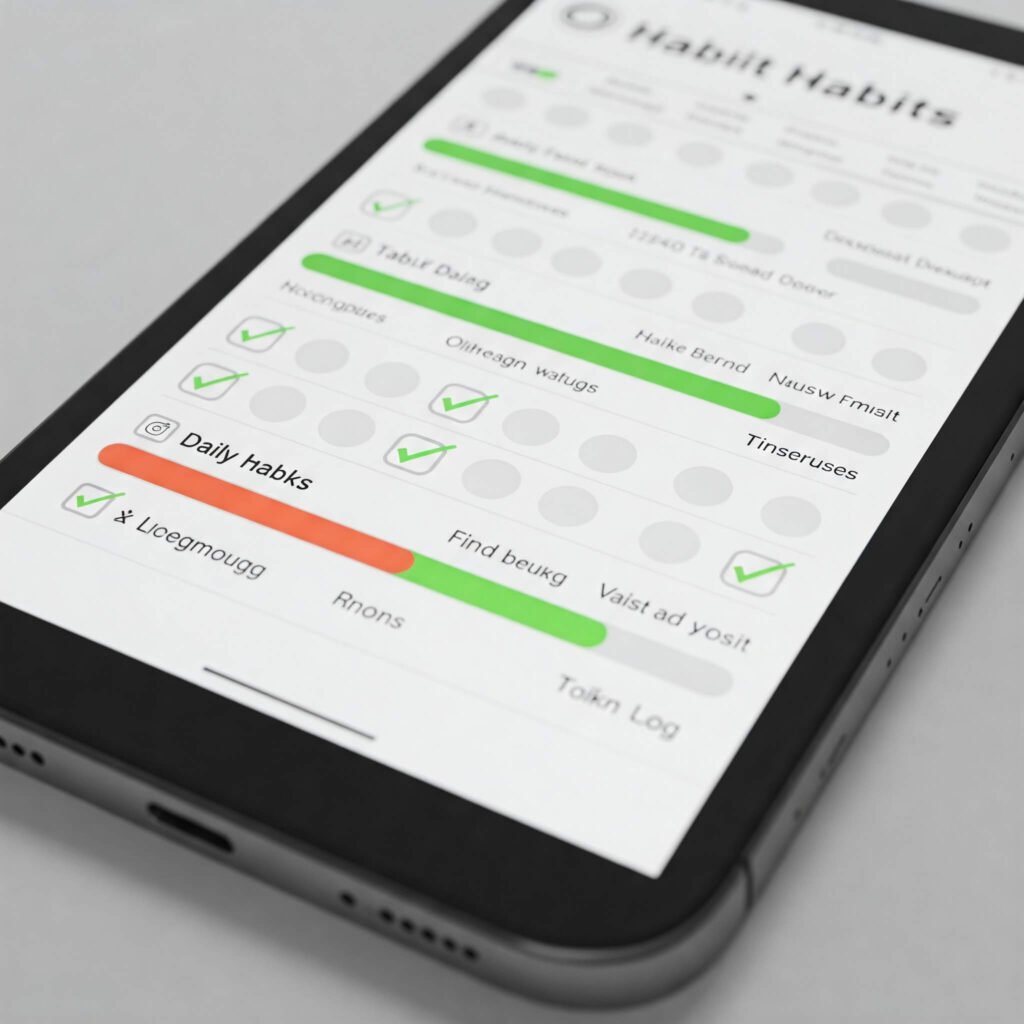Struggling to stick with new habits? You’re not alone. How to start building good habits is a challenge for many, especially if you’ve quit multiple times before. The good news? Habit formation isn’t about perfection—it’s about small, sustainable steps that lead to lasting change. In this guide, we’ll share practical, research-backed strategies to help you build good habits, overcome the urge to quit, and stay consistent in 2025. From starting small to using habit trackers, these tips will empower you to create routines that stick.

Why Building Good Habits Is Hard (And How to Fix It)
Habit formation is a science. A 2019 study in Nature found that it takes an average of 66 days to form a habit, but the process varies based on complexity and consistency (Source: Nature). If you always quit, it might be due to:
- Overambition: Setting unrealistic goals leads to burnout.
- Lack of Clarity: Vague habits (e.g., “be healthier”) are hard to track.
- No Accountability: Without support, motivation fades.
The solution? Use smart strategies to make how to start building good habits feel manageable and rewarding. Let’s explore how.
Proven Strategies for How to Start Building Good Habits
1. Start Small to Build Good Habits
Big goals are exciting, but they often lead to quitting. Instead, break your habit into tiny, achievable steps to build momentum.
- How to Do It: Want to exercise daily? Start with 5 minutes of stretching. Aim to read more? Commit to one page a night.
- Example: Maria, a teacher, wanted to journal but kept quitting. She started with one sentence a day and now writes pages effortlessly.
- Why It Works: Small actions reduce resistance and build confidence over time.
For more on starting small, check out James Clear’s Atomic Habits principles (James Clear).
2. Use a Habit Tracker to Stay Consistent
A habit tracker is a visual tool to monitor progress and stay motivated. Tracking makes how to start building good habits tangible and rewarding.
- Options: Try apps like Habitica or printable templates from Canva.
- Example: Tom, a student, used Habitica to track his study sessions. The app’s gamified rewards kept him engaged, and he aced his exams.
- Pro Tip: Track only 2–3 habits at a time to avoid overwhelm.

3. Tie New Habits to Existing Routines
Habit stacking—pairing a new habit with an existing one—makes it easier to stick with how to start building good habits.
- How It Works: After an established habit (e.g., brushing your teeth), add a new one (e.g., 2 minutes of gratitude journaling).
- Example: Sarah wanted to meditate but kept forgetting. She started meditating for 5 minutes after her morning coffee, and it became automatic.
- Burnout-Proof Tip: Choose a trigger that’s already consistent in 4. Why It Works: Linking habits to routines leverages existing behaviors, reducing mental effort.
How to Start Building Good Habits Without Quitting
4. Embrace the “Two-Day Rule” to Avoid Quitting
The “Two-Day Rule” is simple: Never skip a habit two days in a row. This prevents small slip-ups from derailing your progress.
- How to Use It: If you miss a workout, don’t skip the next day. Get back on track immediately.
- Example: Alex, a writer, missed a day of writing but used the Two-Day Rule to resume the next day, saving his streak.
- Why It Helps: It builds resilience and prevents quitting from becoming a habit.
For more habit-building tips, explore Psychology Today.
5. Find Accountability to Stay Motivated
Accountability partners or communities make how to start building good habits easier by providing support and encouragement.
- Options: Join a habit-building group on Reddit or enlist a friend to check in weekly.
- Example: Lisa and her coworker committed to daily walks and texted each other to stay accountable. They’ve walked consistently for six months.
- Tip: Share your goals publicly (e.g., on social media) to boost commitment.

6. Reward Yourself for Consistency
Rewards reinforce how to start building good habits by making the process enjoyable.
- How to Do It: Treat yourself after hitting milestones (e.g., a movie night after 10 days of meditation).
- Example: Jake rewarded himself with a new book after 30 days of reading daily, which kept him excited.
- Caution: Choose rewards that align with your goals (e.g., avoid junk food if building healthy eating habits).
Tools to Support How to Start Building Good Habits
These tools can supercharge your habit-building journey:
- Habitica: Gamified habit tracker (Habitica).
- Notion: Customizable goal-setting templates (Notion).
- Trello: Organize habits like a project board (Trello).
- Canva: Free printable habit trackers.
- Todoist: Task manager for habit reminders (Todoist).
For more productivity tools, see Forbes’ list.
Tips to Keep Building Good Habits Long-Term
To make how to start building good habits a lifelong practice, follow these tips:
- Be Patient: Habits take time—don’t expect overnight results.
- Reflect Weekly: Review what’s working and adjust as needed.
- Celebrate Small Wins: Acknowledge progress to stay motivated.
- Forgive Slip-Ups: Missed a day? Restart without guilt.
- Experiment: Try different tools and strategies to find your fit.
Conclusion: Start Building Good Habits Today
How to start building good habits doesn’t have to be daunting, even if you’ve quit before. By starting small, using trackers, stacking habits, and staying accountable, you can create routines that last. Pick one strategy from this guide and commit to it for 30 days. You’ll be amazed at how far you’ve come.



































